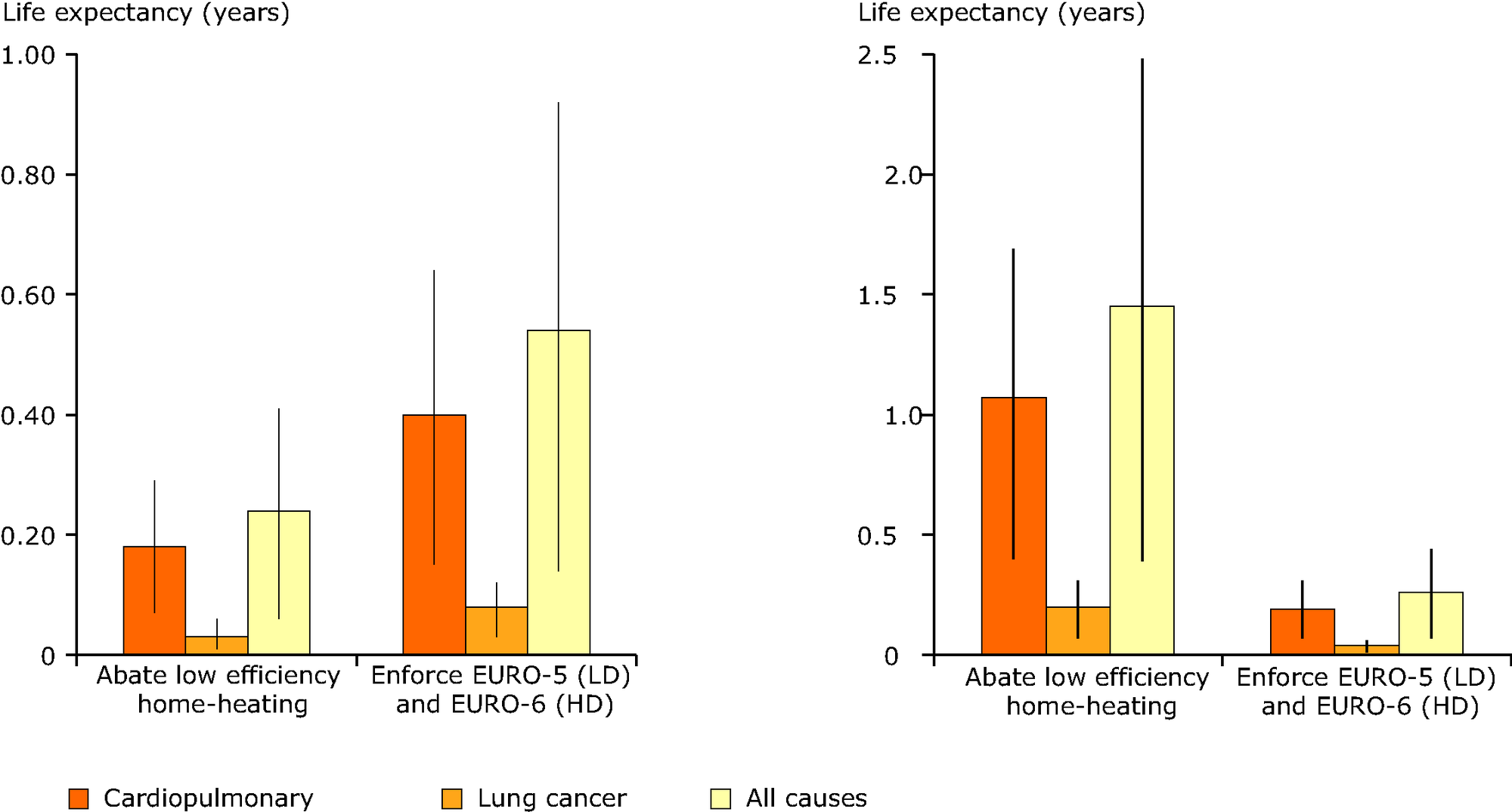
Researchers estimate that 20% to 30% of life expectancy is genetic. The remainder is due to a combination lifestyle and genes. Despite the fact that life expectancy is increasing, it hasn't changed much over the last few decades. There are a number of factors that can affect a person's life span. A healthy diet and exercise are among the most important ones.
Genetics is still in the early stages of research, but it has been proven that higher lifespan can be linked with nutritional requirements. It was also discovered that 25% of human life span variance is genetic. There are many genes involved in aging. Although not fully understood, there are three genes that have been shown to be linked with longevity. These genes are the APOE, FOXO3 and CETP genes. Although these genes don't seem to play a role in determining one's lifespan, they are known to act together.

The average American life expectancy is around 80-80 years. Asian-Americans on the other hand, live an average of nearly 100 years more. Black Americans live the longest, but are also more likely to be in poorer health. Also, men are more likely to develop heart disease, diabetes, and cancer than their white counterparts. However, women tend to live longer than men. While there are theories about the reasons for their longer life span, they are all attributed to greater health and fewer physical activities.
While life span is not a genetic factor, lifestyle factors are important. It is all about the lifestyle a person chooses, as well as the environment where they live and the foods they eat. Lifestyle is more important than genetics for determining how long a person lives. As they age they are more likely not to develop many age-related ailments and remain healthy.
Genetics, lifestyle, and environment all influence the length of your life expectancy. People who live longer than their peers are healthier. Their parents' lifestyle and environment are the main factors in determining the length of their lives. Also, poorer people's diet and nutrition can impact their longevity. While these factors can be important, they don't always cause longevity. Consume healthy foods if you want your life to be longer. Those who eat a lot of fresh fruit and vegetables are also more likely to live longer.

Scientists have examined people who live into their nineties or even nineties. They have the same lifestyles as those who live in their nineties and thirties. They don't smoke and aren't overweight. They are also able to cope with stress. They are also more likely female. Importantly, older adults in good health are more likely than their counterparts to live longer.
FAQ
What is a good gym routine for you?
Regular exercise is essential to staying fit. It doesn't matter which type of fitness you choose, as long as it is done regularly. The most important thing is consistency. It is important to stay consistent in order to get results.
Begin by starting to do a little bit of physical activity each day (like walking). Increase the time you spend exercising each day until you can do 30 minutes. This could be running, biking, swimming or weight training.
Try to get active every day. If you have a reason to miss a session, don't skim it.
If you exercise outside, ensure that you wear appropriate clothing and footwear. Weather conditions can also affect your ability and safety to exercise.
When exercising, ensure you drink lots of water. Drinking alcohol during exercise can cause dehydration. Also, avoid caffeinated drinks such as coffee, tea, and cola. They may give you energy, but they will also dehydrate you.
At first, it's normal to feel tired after you finish your exercise routine. Keep going with your workouts and you'll soon feel more energized.
Do I need to exercise every morning?
No! Get at least 30 minutes of moderate-intensity physical activity 5 days a week. It means you need to exercise hard enough or walk fast enough that you are slightly out-of- breath.
How to get rid of belly fat fast
There are many fast ways to lose belly fat. One way is to eat less food and drink plenty of water.
Running and swimming are two other ways to boost your metabolism.
You should avoid sitting for too long if you want to quickly lose belly fat. Stand up often throughout the day. This will help to burn more calories.
If you have already tried all these methods but still struggle with belly fat, there is another option.
You will need a belt to do this. The belt fits around your waist and is tightened when you sit down.
This will make you feel uncomfortable and allow you to move about. This causes you to burn more calories, and your belly fat will decrease.
Statistics
- According to the American Heart Association, blood pressure should be checked at least once every two years, beginning at age 20. (my.clevelandclinic.org)
- Candidates and applicants must pass all four tests at 70% (minimum level) to graduate from Basic Deputy U.S. Marshal (BDUSM) Training. (usmarshals.gov)
- An estimated calorie range for moderately active adult males falls between 2,200 to 2,800 calories per day, depending on age. (eatright.org)
- Are You One of the 20% of Guys (mh.co.za)
- The PRS enabled risk stratification for overall prostate cancer and lethal disease with a four-fold difference between men in the highest and lowest quartiles (HR, 4.32; 95% confidence interval [CI], 3.16-5.89). (pubmed.ncbi.nlm.nih.gov)
External Links
How To
What nutrients do men need each day?
For healthy growth and development, men need to eat a balanced diet. The body requires vitamins and minerals, protein, carbohydrates, fats (fats), water, fiber, as well other essential elements.
The male body also requires specific nutrients at different times throughout the day. For example, when you sleep, your body uses energy from food to make hormones, antibodies, and enzymes. When you get up, protein is used to repair and build muscle.
Your body stores extra energy as glycogen and breaks down fat at night. Your body will still need nutrients, but it will require fewer calories during this time. You may have an occasional snack during the evening hours if you feel hungry.
To fuel your muscles while you train, you will need sufficient carbs as well as protein. After a hard workout, muscle soreness may occur.
To prevent this, you should eat carbs as well as protein within the first two hours after training. Your body will use stored glycogen to produce glucose for energy.
Also, protein must be consumed immediately after your workouts. This prevents the breakdown of muscle tissue that occurs while you sleep.
Your body produces lactic acid during high levels of physical activity. It builds up in your bloodstream, which can lead to fatigue. You can avoid this by eating carbohydrates-rich foods like fruits and veggies.
Carbohydrates are a good source of energy to help you recover from hard exercise.
Additionally, lean meats, fish and eggs, dairy products, yogurt, cream, cheese, yogurt and beans can be added to your diet.
All of these foods contain high quality protein. Protein helps to repair and grow muscles. Protein also supplies the amino acids your body requires to make sex hormones, such as testosterone.
For healthy skin, hair and joints, it is important to eat enough fats. Healthy men should consume between 20% to 35% of their daily caloric intake from fat.
Fat protects your heart from cancer and keeps it strong. It helps keep your brain working properly.
You can get the majority of the fats that you need from vegetable oils such as soybean oil.
These oils are high-in monounsaturated, unsaturated fatty acid (MUFAs). MUFAs can lower cholesterol levels and reduce inflammation. They protect your cells and prevent damage from free radicals.
Saturated fats (SFAs) are found mostly in animal products like meat, dairy products, and butter. SFAs increase LDL ("bad") cholesterol, and increase triglycerides. They promote weight gain as well as belly fat.
Plant-based fats such as vegetable oils, seeds, nuts and grains contain polyunsaturated (PUFAs). PUFAs help improve cardiovascular function, and lower inflammation. They are also good for controlling blood sugar and cholesterol.
Erectile dysfunction is common in men with low HDL ("good") cholesterol. The consumption of saturated fats raises bad cholesterol which in turn lowers good cholesterol.
Men who eat lots of red meat or pork can develop prostate problems. This is because these foods contain high amounts of nitrates. Nitrites convert to nitrosamines when cooked at high temperatures. These compounds can cause lung cancer.
Many processed meats are high in nitrites, and other dangerous chemicals. Avoid them.
The American Heart Association recommends that you limit your intake of red meat to 2 per week. Instead, choose poultry and fish, legumes, tofu or whole grain bread as your main source of protein.